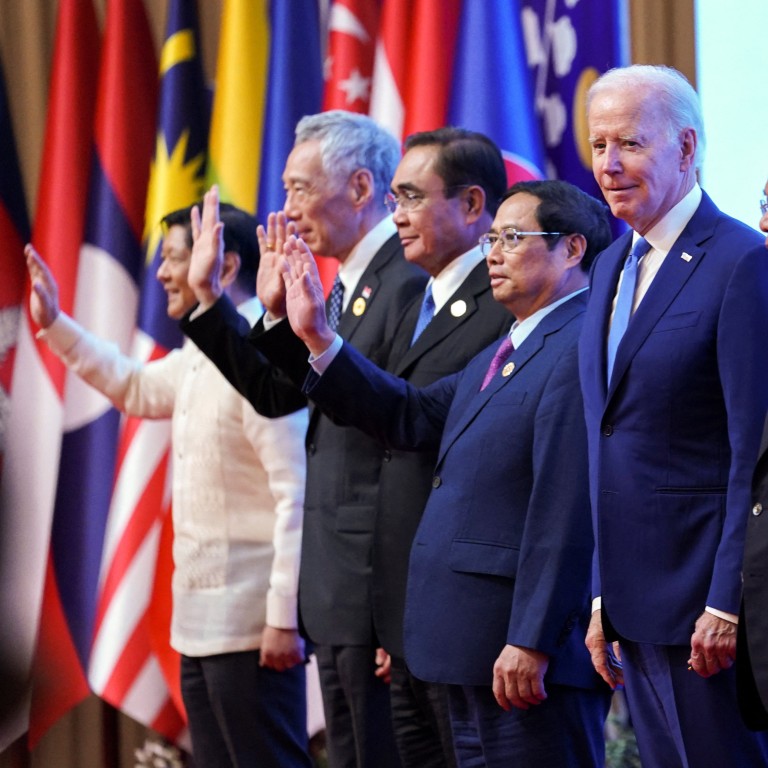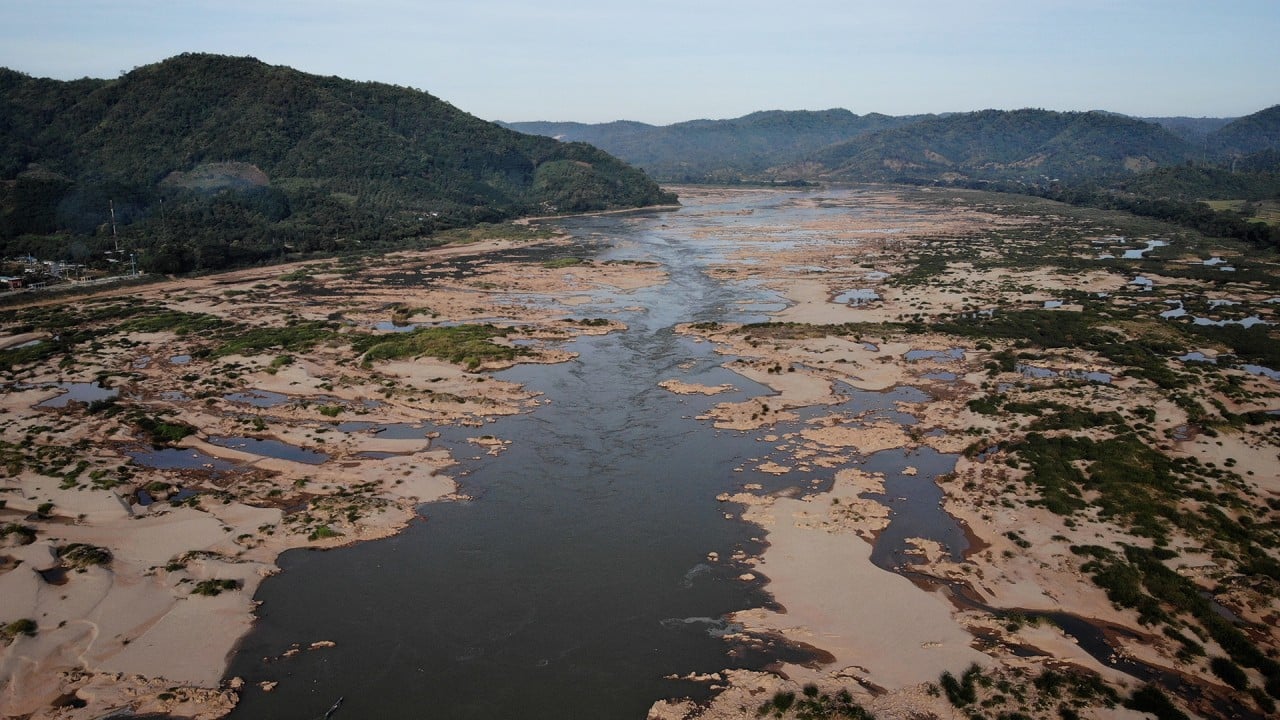
US clout in Southeast Asia grows even as China still viewed as most influential: survey
- Annual survey by Singapore’s ISEAS-Yusof Ishak Institute polled more than 1,300 people across Southeast Asia to assess views on nations that ‘inform, influence policy’
- It found growing support for Washington and decline for Beijing, although enthusiasm for US fell in some areas; Japan was region’s most trusted power
While China remains the most influential political and strategic power in Southeast Asia, its influence over the last year has declined considerably among those with policymaking powers in the region, while the clout of the United States has risen, according to an annual survey.
Across the region, the number of respondents who said they viewed China as the most influential and strategic power stood at 41.5 per cent, down from 54.4 per cent in last year’s survey.
On the same question of who they thought was the most influential power in the region, 31.9 per cent of respondents this year picked the US, compared with 29.7 per cent in 2022.
On which nation was most likely to provide leadership to maintain the rules-based order and uphold international law, the number of respondents who picked China fell from 13.6 per cent last to just 5.3 per cent this year.
On that same question, 27.1 per cent of respondents picked the US in 2023, compared with 36.6 per cent last year.
Almost half of respondents (49.8 per cent) indicated they had either “little confidence” or “no confidence” in China to “do the right thing” to contribute to global peace, security, prosperity and governance.
In Myanmar, 80 per cent chose “little confidence” or “no confidence” when posed this question. In Vietnam, that figure was 78.7 per cent, while it was 62.7 per cent in the Philippines.
The survey found that among those who distrusted China, “41.4 per cent [of all those questioned] think that China’s economic and military power can be used to threaten their country’s interest and sovereignty”.
Among this group, 26.6 per cent thought that China was not a reliable power, followed by 12.7 per cent who felt China’s future stability had become more uncertain after the 20th Party Congress in October.
Another 11.3 per cent expressed worry that China was distracted with its internal affairs.
However, the view that Japan’s military power could be an asset for peace and stability saw almost a three-fold increase from 2.6 per cent to 7.2 per cent this year. Last year, amid what Japan called “the most severe and complex security environment since WWII”, it approved an increase in military spending by more than a quarter in 2023 to US$51.4 billion.
While the EU and Japan continued to take the lead (42.9 per cent and 26.6 per cent, respectively) for respondents in hedging against the uncertainties of US-China strategic rivalry, India, which was ranked last in 2022, doubled its approval from 5.1 per cent to 11.3 per cent to take the third spot.

Confidence in India was likely due to New Delhi’s greater visibility, such as the 30th anniversary of Asean-India relations last year which led to an elevation to Comprehensive Strategic Partnership status, and the South Asian nation’s G20 presidency this year, the survey report added.
Among them, 28.7 per cent felt that Asean countries would be forced to take sides, while 15.5 per cent expressed concerns that hostilities would reduce economic cooperation with either Beijing or Taiwan.
Taiwan’s rich eye a Singapore ‘insurance policy’ amid fears of China attack
Speaking at the launch of the survey on Thursday, Wendy Cutler, vice-president at the Asia Society Policy Institute, said the perception of China’s decline in influence is attributed to factors such as the country’s focus on domestic policies and regional concerns about its activities in the disputed South China Sea.
She added Washington got a boost in its favourability ratings as it stepped up engagement with Southeast Asia including President Joe Biden’s attendance at last year’s US-Asean summit.
“China had not taken into consideration the interests of riparian countries such as Vietnam and Cambodia when it [decided to] build dams in the upper reaches of the river,” Koh said.
Chen Dongxiao, a senior research fellow and president of the Shanghai Institutes for International Studies, described the situation across the Taiwan Strait as being on a negative downward spiral.
He said whether or not tensions will lead to military confrontation in the Taiwan Strait will depend on efforts taken by Washington, Beijing and Taipei.
Chen suggested Asean can pursue “active diplomacy” to help reduce tensions across the Taiwan Strait.
“[Asean] can tap on its convening power to bring concerned parties to talk directly. I believe Beijing will value this convening power,” he added.



